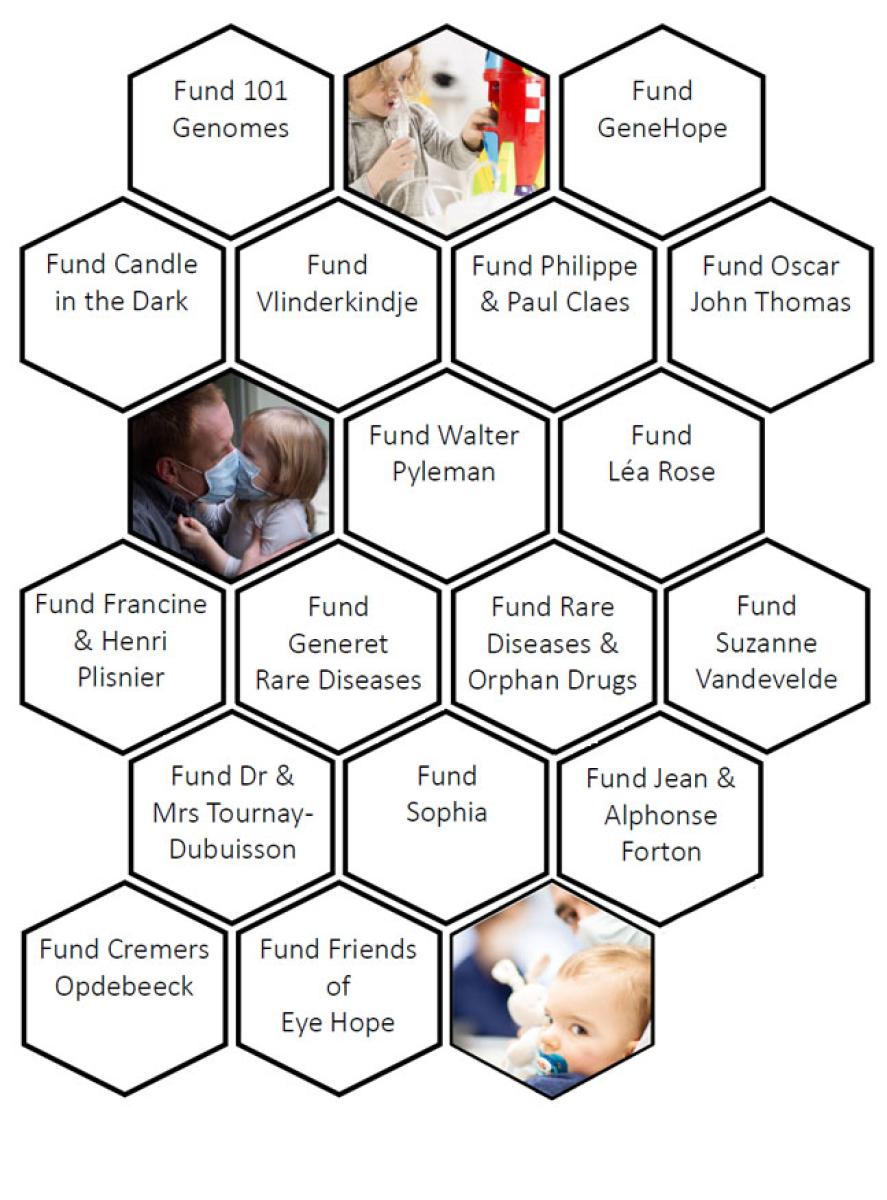17 Funds, managed by the King Baudouin Foundation, contribute to better care for patients with rare diseases

29 February is International Rare Disease Day: a day to draw attention to over 300 million people worldwide, impacted by a rare disease. Today, 17 of the Funds within the King Baudouin Foundation are actively contributing, each in their own way, to better care for these patients, their loved ones and their caregivers.
Once every four years, the calendar includes an extra day: 29 February. A rare occurrence, and therefore a good reason to declare this day the International Rare Disease Day.
Rare diseases present a complex yet often unacknowledged challenge in medical science. It is precisely due to their limited occurrence that these conditions present highly specific problems with regard to their treatment and diagnosis.
In Europe, a disease is labelled 'rare' if it occurs in no more than 1 in 2,000 people. An 'ultra rare' disease affects a maximum of 1 in 50,000 people. Up until today, some 6,200 rare diseases have already been the subject of scientific studies, and this list is regularly expanded with new conditions. In addition to these, ultra-rare variants of common diseases can also emerge from time to time.
Each rare disease in itself affects only a small number of people. However, if we were to consider all people suffering from a rare condition as a single group, it would comprise a significant proportion of the population. The number of people worldwide who suffer from a rare disease is estimated at 3.5 to 5.9%. If we were to apply this percentage to the Belgian population, this would correspond to around 500,000 patients.
A rare disease is often degenerative, disabling, chronic and life-threatening. About 72% of rare diseases can be attributed to genetic makeup, 75% affect children, and 30% of those who suffer from a rare disease die before they reach their fifth birthday.
To diagnose rare diseases in time, to treat them correctly and to provide patients with the support they need, we need more training, more research and more resources. The King Baudouin Foundation wants to contribute to this. Through the Funds under its management, the Foundation co-finances research projects into diagnosis and treatment, and supports initiatives directed at improving the quality of life for patients and their families.
Funds managed by the King Baudouin Foundation
The people who find their way to the King Baudouin Foundation are often patients themselves, or are close to someone who is affected by a rare disease. By setting up a Fund at the Foundation, they are converting their difficult experiences into positive action.
Of course, there are also people who set up a Fund for purely philanthropic reasons. One of these is Suzanne Generet. As the heiress of textile manufacturer Hubert Generet, she wanted her estate to serve society. When she died in 2016, her will provided for the establishment of a Fund to be managed by the King Baudouin Foundation, with two objectives: the protection of our cultural heritage and support for medical research. ‘When deciding which area of research to fund, we decided to focus on rare diseases,’ says Pierre-Paul De Schrevel, Chairman of the Generet Fund's Management Committee. ‘They are, after all, often overlooked in medical research.’ The Generet Prize for Rare Diseases has been awarded by the Fund ever since 2017. It is one of the most prestigious prizes in Belgium, and worth 1,000,000 euros. The prize is conferred on a world-class researcher for his or her pioneering research in the field of rare diseases. The 2023 prize winner, the seventh researcher to be honoured with this award, will be announced on 15 March.
Newcomer to the rare disease fund series at the King Baudouin Foundation is the GeneHope Fund. Launched on 28 February 2024, it will focus primarily on diagnostics and genetic testing. The story behind this establishment of this Fund is deeply personal: the loss of a child stemming from a rare genetic mutation.
Are you curious about the activities of the Funds for rare diseases managed by the King Baudouin Foundation? You will find more information through the following link: presentation of the Rare Diseases Funds.